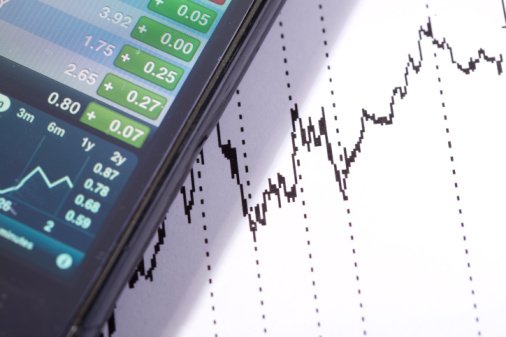by Avi Hooper, Senior Portfolio Manager, Invesco Canada
As we live, work and invest, we must all become aware of the impact we have on the world and seek to improve our current way of life. Responsible investing means being thoughtful in how we allocate our assets to encourage countries and companies to set polices that promote overall improvement in the way we live. The consideration of environmental, social and governance (ESG) factors has become synonymous with leading this shift to responsible investing.
Over the past 15 years, ESG assets have grown from a negligible sum to an estimated USD30 trillion1 –about one-third of all investments globally. This trend is expected to accelerate in the coming years. Invesco Ltd. launched its first socially responsible investment product 30 years ago and became a signatory of the United Nations-backed Principles for Responsible Investment in 2013. Invesco Ltd. has achieved an A+ in Strategy and Governance for the past three consecutive years.2
How the Invesco Fixed Income (IFI) team† integrates ESG considerations
Within IFI, ESG processes are integrated directly into our overall credit research process. IFI’s global team of over 130 credit analysts works closely with fixed income issuers and is focused on monitoring progress with regard to ESG initiatives. Invesco’s access to information is the cornerstone of best-in-class investing. Sector specialists use measures unique to their industry or region to uncover valuable information about a company’s true practices. Our sector specialists do not rely on third-party ESG data, but instead work closely with bond issuers. Direct engagement with bond issuers ensures that ESG-related changes are moving in a positive direction, which is at the core of our ESG philosophy.
Invesco ESG Canadian Core Plus Bond ETF (BESG) and Invesco ESG Canadian Core Plus Bond ETF Fund3
Invesco Canada changed the investment objectives and strategies on October 30, 2020 for Invesco ESG Canadian Core Plus Bond ETF (BESG) and Invesco ESG Canadian Core Plus Bond ETF Fund, a mutual fund that invests primarily in BESG. We believe a sector exclusionary strategy leads to a focus on best-in-class bond issuers from a credit quality and ESG perspective. Industry screening is employed to exclude companies based on their involvement in production of tobacco products, controversial weapons, extraction of thermal coal and extraction of fossil fuels from unconventional sources. The energy sector receives the greatest amount of attention. For Canadian fixed income, this means avoiding upstream oil sands producers in favour of companies focused on renewable energy. By screening out companies or industries that are viewed as contrary to our internal ESG ratings*, the portfolio is expected to be of higher quality. The resulting portfolio is also focused on companies and countries with positive or improving ESG factors**.
Why ESG, why now?
We believe investing should reflect a set of beliefs that represents personal values. Through our investment process, we seek to make the world a better place for a greater share of the population. Global assets will likely increasingly be allocated to investment strategies that seek to engage and develop the way fixed income issuers act towards their shared corporate and social responsibilities. There are 195 countries on Earth, but we only have one planet.

1 Source: Global Sustainable Investment Alliance (2018) Global Sustainable Investment Review.
2 Source: Invesco and ESG: The incorporation of environmental, social and governance factors into our investment process
3 Invesco ESG Canadian Core Plus Bond ETF Fund (formerly Invesco Tactical Bond Fund) (the “Fund”) invests in Invesco ESG Canadian Core Plus Bond ETF (formerly Invesco Tactical Bond ETF) (“BESG”). The Fund and BESG changed their investment objectives and strategies on October 30, 2020. Under their previous objectives and strategies, the Fund and BESG did not apply any environmental, social or governance (ESG) criteria to their investments. In order to allow for an orderly transition of the investment portfolio of the ETF to its new investment objectives and strategies, there will be a transitional period during which the ETF may not be fully invested in accordance with its new investment objectives and strategies and, if this is the case, then the Fund may not be fully invested in accordance with its investment objectives and strategies
† Invesco Fixed Income (IFI) is a unit comprising Invesco Senior Secured Management, Inc. of New York, U.S.; Invesco Advisers, Inc. of Atlanta, U.S.; Invesco Asset Management Ltd. of London, U.K.; and Invesco Canada Ltd. of Toronto, Canada.
Avi Hooper is part of Invesco Advisers Inc, which is an affiliate of Invesco Canada Ltd and the subadvisor of the funds.
*ESG ratings is a measure of a company’s resilience to long-term, financially relevant ESG risks.
** ESG risk factors: ESG measures to forecast the potential future financial performance of companies relating to sustainability and societal impact of an investment in that company.
Commissions, management fees and expenses may all be associated with investments in mutual funds and exchange-traded funds (ETFs). Trailing commissions may be associated with investments in mutual funds. Mutual funds and ETFs are not guaranteed, their values change frequently and past performance may not be repeated. There are risks involved with investing in ETFs and mutual funds. Please read the prospectus before investing. Copies are available from Invesco Canada Ltd. at www.invesco.ca.
There are risks involved with investing in ETFs. Please read the prospectus for a complete description of risks relevant to the ETF. Ordinary brokerage commissions apply to purchases and sales of ETF units.
Most Invesco ETFs seek to replicate, before fees and expenses, the performance of the applicable Index, and are not actively managed. This means that the Sub-advisor will not attempt to take defensive positions in declining markets and the ETF will continue to provide exposure to each of the securities in the Index regardless of whether the financial condition of one or more issuers of securities in the Index deteriorates. In contrast, if a Invesco ETF is actively managed, then the Sub-advisor has discretion to adjust that Invesco ETF’s holdings in accordance with the ETF’s investment objectives and strategies. ETFs are not diversified investments.
The views and opinions expressed are those of Avi Hooper at the time of publication, are based on current market conditions and are subject to change without notice. These opinions may differ from those of other Invesco investment professionals. Any statement that necessarily depends on future events may be a forward-looking statement. Forward-looking statements are not guarantees of performance. They involve risks, uncertainties and assumptions. Although The information and opinions expressed do not constitute investment advice or recommendation, or an offer to buy or sell any investment security.
Invesco® and all associated trademarks are trademarks of Invesco Holding Company Limited, used under licence.
© Invesco Canada Ltd., 2020
This post was first published at the official blog of Invesco Canada.














